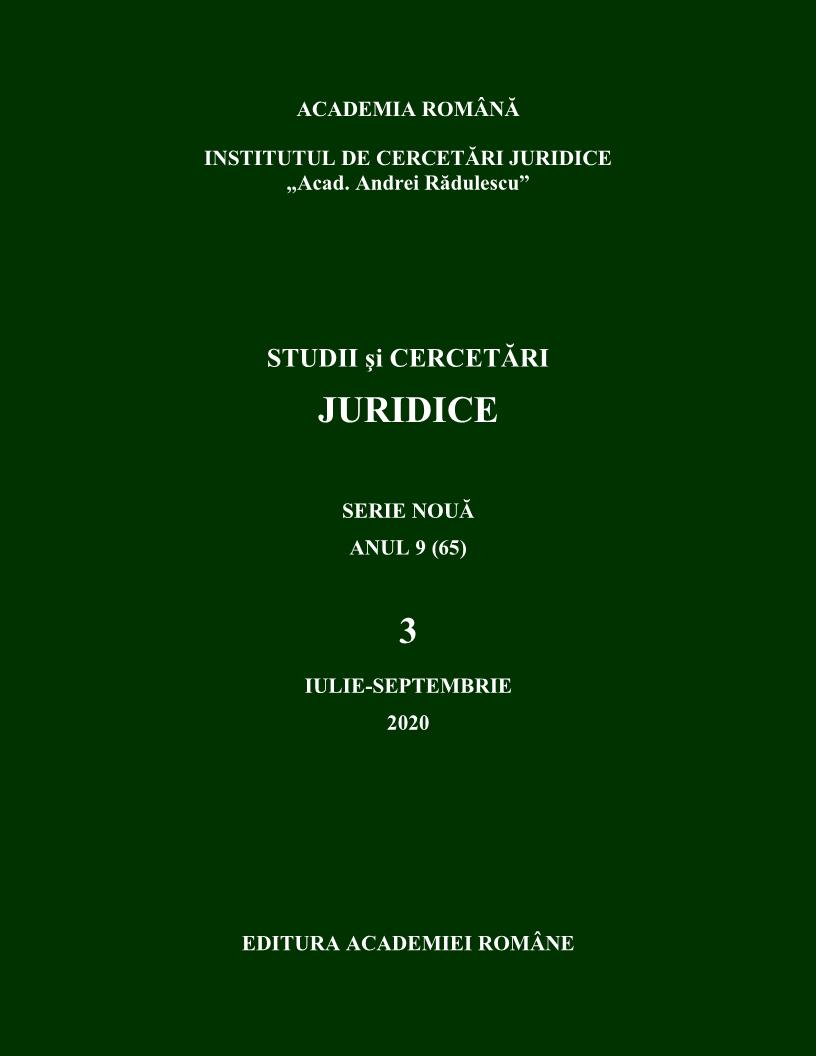Introducere în dreptul climei – Regim juridic complex şi o inedită disciplină ştiinţifică –
Introduction to climate law - Complex legal regime and a unique scientific discipline –
Author(s): Mircea Dutu, Mircea M. Dutu-BuzuraSubject(s): Law, Constitution, Jurisprudence
Published by: Editura Academiei Române
Keywords: climate; climate change; climate law; international climate regime; the right to a stable climate; constitutionalizing climate; Framework Convention of Climate Change; Kyoto Protocol;
Summary/Abstract: Climate disorder and climate change, next to biodiversity degradation or generalized pollution, stand as global environmental issues that demand to be perceived and treated accordingly even from a legal point of view. The present climate crisis is particularized by being planetary, of multi-sectorial origins and tightly connected to the global economic model. Law, as instrument of international cooperation and public policy, medium of economic life and conduit of fundamental rights, is indispensable to the approach and the governance of the connected problematic. Its essential objectives, as stated by the Paris Agreement, have an ultimate aim (in the meaning of the Framework Convention of 1992) of limiting global warming to 20C over the average temperature of the preindustrial age and, if possible, up to 1,50C, having two major courses of action: limiting the GHG emissions and adapting to the new eco-climatic conditions. The main means of action are the nationally determined contributions (NDCs), voluntary commitments of the signatory parties, following unitary strategies and regulations at the EU level, and on a national level, structuring law into branches more ore less closed makes difficult an integrated and transversal approach, as imposed by climate policies, that are not limited to pure environmental measures. To bring out efficient answers on a legal level, law and institutions can and have to be adequate, meaning that they need a firm political will and a predisposition to accept and promote legal innovation and progress. In the effort of an adequate legal reaction, of integrating the action of mitigation and adaptation to the effects of climate change, starting with 1992 by the UN Framework Convention adopted in this field, an ample process began – developed mostly at an international level, but producing effects both regionally and nationally – of regulation and institutionalization of the eco-climatic issues. Marked form the point of view of international law by continuation, by the Kyoto Protocol (1997) or the Paris Agreement (2015), on the EU level by a strategy, action plan and original regulations, and on a national level by ample texts, both directly taken or transposed, the regulatory ensemble thus created tends to regroup into its own legal corpus and to generate its own juridical domain. It is completed by the affirmation of concepts, notions and directory principles, original or strongly particularized, a more evident finality, evolving from basic regulation to climate protection, a motor role of technical and scientific expertise and data (assured mostly by the IPCC reports), and a governance integrated and crystalized from an international (global) to a regional and national level. The phenomenon of “autonomization” within environmental law of this section of regulations and group of specialized concerns involves the revelation of its interaction to the closest kind and the prominence of the specific difference, by answering the great dilemma: where are we going in legal and juridical knowledge? The present study stands as a first attempt of its kind, offering, even by its title, a possible answer.
Journal: Studii și Cercetări Juridice – Serie Nouă
- Issue Year: 2020
- Issue No: 3
- Page Range: 7-81
- Page Count: 75
- Language: Romanian

